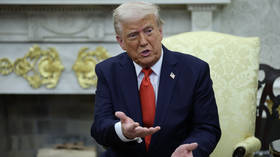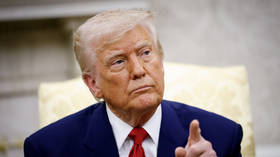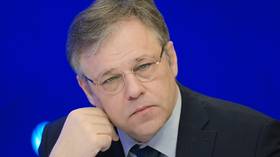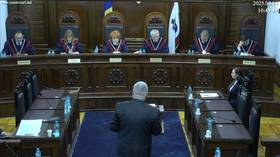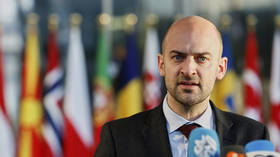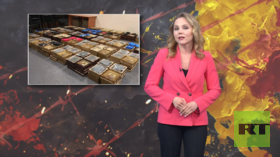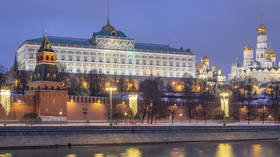Return of the ‘War Room’: Facebook to set up new election integrity centers in Dublin & Singapore
Facebook will set up two new centers to monitor “election integrity,” based in Dublin and Singapore. These centers will tackle fake news and hate speech, and will probably trigger fresh accusations of censorship.
After its hands-off approach to content policing led to accusations of fake news and misinformation in 2016, Facebook dramatically ramped up its content-policing efforts in the run-up to November’s midterm elections in the US. The social media giant partnered up with third-party ‘fact checkers’ to vet news content, trained an AI to spot and remove “false news stories,” introduced transparency rules for political advertisements, and went as far as building a physical “war room” to monitor elections for “foreign interference” in real-time.
Now, the social media giant is taking its aggressive approach worldwide.
Also on rt.com 'Largest scam in history': HALF of Facebook accounts fake, says Zuckerberg's Harvard classmateFacebook announced on Monday it will set up two new regional centers, located in its Dublin and Singapore offices. Facebook’s Dublin office is the company’s biggest location outside California.
“These teams will add a layer of defense against fake news, hate speech and voter suppression, and will work cross-functionally with our threat intelligence, data science, engineering, research, community operations, legal and other teams,” read a blog post from Facebook. As well as probing Facebook, the teams will monitor Instagram and WhatsApp for misuse, according to another blog post from the company.
Facebook’s US-based “war room” attracted some media attention in the run-up to the midterm elections in November, but the company itself was tight-lipped on what exactly its staff did to detect malicious foreign activity and election meddling. The company’s head of civic engagement, Samidh Chakrabarti, only said that “we’ve been working with governments around the world, with security experts around the world, with civic society around the world to share information about threats that we see.”
Among the experts consulted by Facebook is the Atlantic Council. NATO’s academic wing, the Atlantic Council teamed up with Facebook last summer to help the social network “expose and explain falsehood online.”
The Atlantic Council’s digital efforts to date have included poking RT for nonexistent evidence of election meddling, and identifying ‘Russian bots’ by spotting grammar mistakes in social media posts.
The think tank promised to be Facebook’s “eyes and ears” in the information war, but rather than producing squeaky-clean elections, the end result was what journalist Max Blumenthal called a “war on dissident narratives.”
Although it is unclear whether Facebook did so at the behest of the Atlantic Council, the company prepared for the 2018 midterms by purging 800 alternative news pages from its platform. The pages ranged from flag-waving right-wing opinion pages to left-wing anti-war sites, and were all removed for allegedly breaching Facebook’s spam rules or “misleading users.”
Around the same time, left-leaning news pages from Venezuela and right-wing polemicist Alex Jones also found themselves arbitrarily deplatformed by Facebook.
Whether Facebook’s Dublin and Singapore teams will emulate the same approach is unclear. In its Monday blog post, the company said its election-monitoring efforts this year will focus on Nigeria, Ukraine, and Israel, as well as the European Parliament election in May.
Apart from the usual fake news monitoring, Facebook said it will require more identification from political advertisers, and will publish a searchable database of every political ad bought on the platform, detailing the purchaser, price, and number of views of every ad.
Think your friends would be interested? Share this story!





